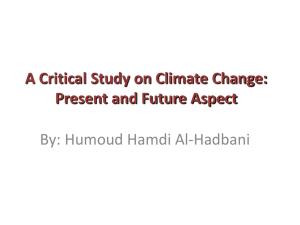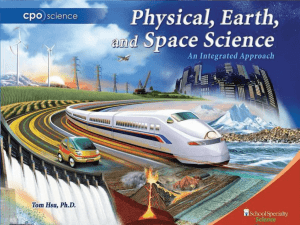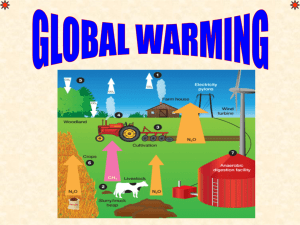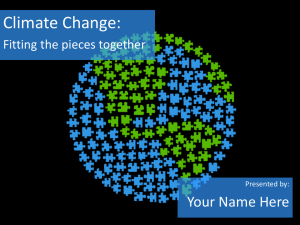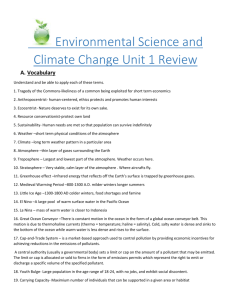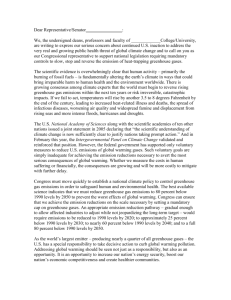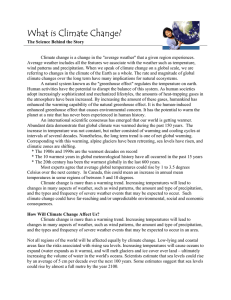Human‐Induced Climate Change Requires Urgent Action Humanity is the major influence on the global climate change observed over the past 50 years. Rapid societal responses can significantly lessen negative outcomes.
advertisement
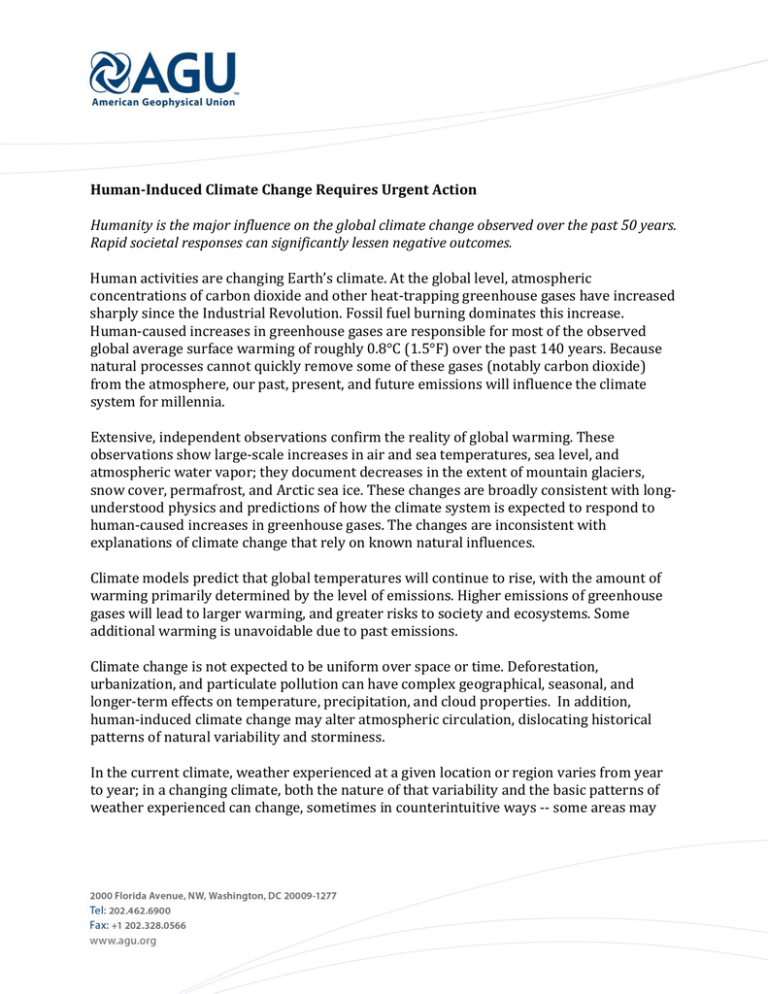
Human‐InducedClimateChangeRequiresUrgentAction Humanityisthemajorinfluenceontheglobalclimatechangeobservedoverthepast50years. Rapidsocietalresponsescansignificantlylessennegativeoutcomes. HumanactivitiesarechangingEarth’sclimate.Atthegloballevel,atmospheric concentrationsofcarbondioxideandotherheat‐trappinggreenhousegaseshaveincreased sharplysincetheIndustrialRevolution.Fossilfuelburningdominatesthisincrease. Human‐causedincreasesingreenhousegasesareresponsibleformostoftheobserved globalaveragesurfacewarmingofroughly0.8°C(1.5°F)overthepast140years.Because naturalprocessescannotquicklyremovesomeofthesegases(notablycarbondioxide) fromtheatmosphere,ourpast,present,andfutureemissionswillinfluencetheclimate systemformillennia. Extensive,independentobservationsconfirmtherealityofglobalwarming.These observationsshowlarge‐scaleincreasesinairandseatemperatures,sealevel,and atmosphericwatervapor;theydocumentdecreasesintheextentofmountainglaciers, snowcover,permafrost,andArcticseaice.Thesechangesarebroadlyconsistentwithlong‐ understoodphysicsandpredictionsofhowtheclimatesystemisexpectedtorespondto human‐causedincreasesingreenhousegases.Thechangesareinconsistentwith explanationsofclimatechangethatrelyonknownnaturalinfluences. Climatemodelspredictthatglobaltemperatureswillcontinuetorise,withtheamountof warmingprimarilydeterminedbythelevelofemissions.Higheremissionsofgreenhouse gaseswillleadtolargerwarming,andgreaterriskstosocietyandecosystems.Some additionalwarmingisunavoidableduetopastemissions. Climatechangeisnotexpectedtobeuniformoverspaceortime.Deforestation, urbanization,andparticulatepollutioncanhavecomplexgeographical,seasonal,and longer‐termeffectsontemperature,precipitation,andcloudproperties.Inaddition, human‐inducedclimatechangemayalteratmosphericcirculation,dislocatinghistorical patternsofnaturalvariabilityandstorminess. Inthecurrentclimate,weatherexperiencedatagivenlocationorregionvariesfromyear toyear;inachangingclimate,boththenatureofthatvariabilityandthebasicpatternsof weatherexperiencedcanchange,sometimesincounterintuitiveways‐‐someareasmay experiencecooling,forinstance.Thisraisesnochallengetotherealityofhuman‐induced climatechange. Impactsharmfultosociety,includingincreasedextremesofheat,precipitation,andcoastal highwaterarecurrentlybeingexperienced,andareprojectedtoincrease.Otherprojected outcomesinvolvethreatstopublichealth,wateravailability,agriculturalproductivity (particularlyinlow‐latitudedevelopingcountries),andcoastalinfrastructure,thoughsome benefitsmaybeseenatsometimesandplaces.Biodiversitylossisexpectedtoaccelerate duetobothclimatechangeandacidificationoftheoceans,whichisadirectresultof increasingcarbondioxidelevels. Whileimportantscientificuncertaintiesremainastowhichparticularimpactswillbe experiencedwhere,nouncertaintiesareknownthatcouldmaketheimpactsofclimate changeinconsequential.Furthermore,surpriseoutcomes,suchastheunexpectedlyrapid lossofArcticsummerseaice,mayentailevenmoredramaticchangesthananticipated. Actionsthatcoulddiminishthethreatsposedbyclimatechangetosocietyandecosystems includesubstantialemissionscutstoreducethemagnitudeofclimatechange,aswellas preparingforchangesthatarenowunavoidable.Thecommunityofscientistshas responsibilitiestoimproveoverallunderstandingofclimatechangeanditsimpacts. Improvementswillcomefrompursuingtheresearchneededtounderstandclimatechange, workingwithstakeholderstoidentifyrelevantinformation,andconveyingunderstanding clearlyandaccurately,bothtodecisionmakersandtothegeneralpublic. AdoptedbytheAmericanGeophysicalUnionDecember2003;RevisedandReaffirmed December2007,February2012,August2013.
